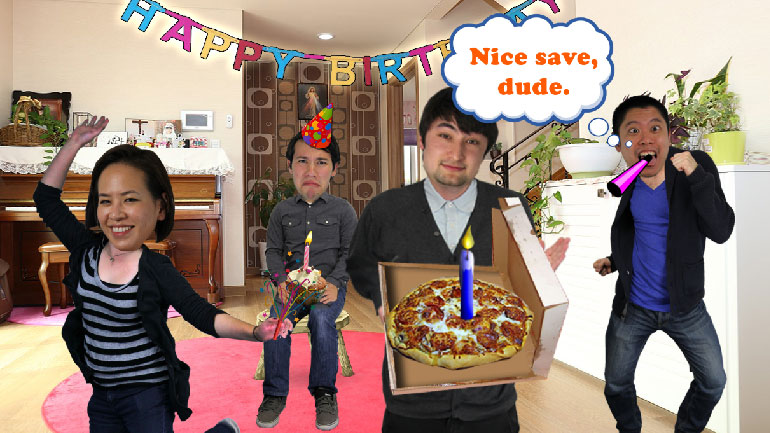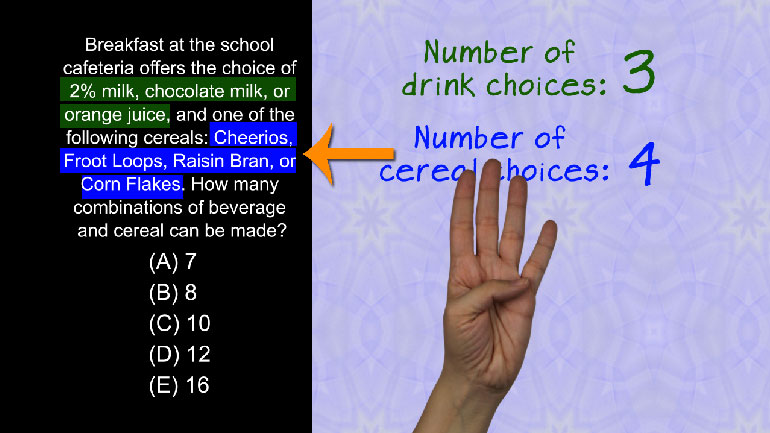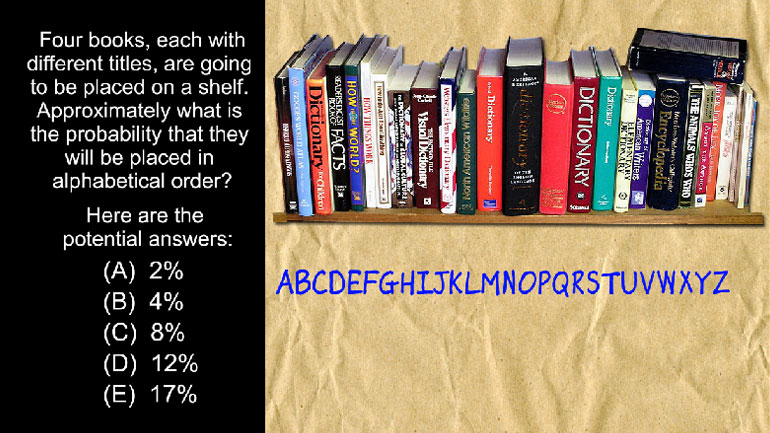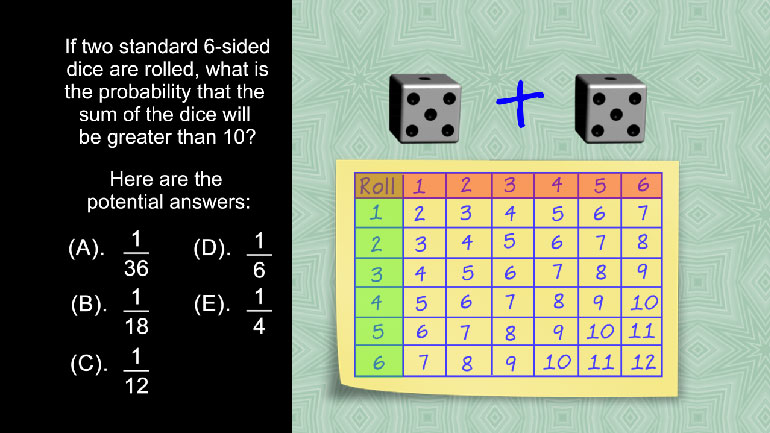ShmoopTube
Where Monty Python meets your 10th grade teacher.
Search Thousands of Shmoop Videos
Disjoint and Overlapping Events 18769 Views
Share It!
Description:
Disjoint events are events that cannot happen at the same time. If one happens, the other doesn't. Simple as that. Overlapping events, on the other hand, cannot happen without each other. Talk about separation anxiety...
Transcript
- 00:06
Disjoint and Overlapping Events, a la Shmoop It’s a little known fact that most Pirates
- 00:11
miss their mommies.
- 00:13
That’s why every Friday night they kidnap a mommy and roll dice to see who gets to be
- 00:17
read a bedtime story. To play this dice game, the pirates have to
- 00:22
know a little something about Disjoint Events.
Full Transcript
- 00:26
Disjoint Events cannot both occur at the same time. If one happens, the other doesn’t.
- 00:34
If a pirate is flying in the air, he is not swimming underwater at the same time.
- 00:39
Disjoint Events are also described as Mutually Exclusive, because the occurrence of one excludes
- 00:46
the occurrence of the other.
- 00:49
Another type of Disjoint Event is a Complementary Event. This is when one event occurs if and
- 00:55
only if the other event does not.
- 00:59
For example, a pirate flips a doubloon. If it is not tails, it must be heads, because
- 01:06
the events are complementary. Overlapping events are events that have one
- 01:14
or more outcomes in common.
- 01:16
For example, if a pirate walks into the bar, there’s a possibility he could be missing
- 01:21
both a leg and an eye. Back to the dice game. Let’s test your pirate
- 01:27
jargon.
- 01:30
How would you describe these events:
- 01:32
Rolling a die and getting an odd number or a 4. Note that the weird bar sign isn't a
- 01:39
typo, that bar sign is just another way for mathematicians to write "or."
- 01:44
They are mutually exclusive, because a 4 cannot be an odd number.
- 01:53
How about rolling a die and getting an odd number or an even number?
- 01:57
They are both mutually exclusive and complementary, because if you don’t get an even number
- 02:04
you get an odd number, and vice versa.
- 02:07
And finally, rolling a die and getting an even number or a four.
- 02:13
They are neither mutually Exclusive nor Complementary. They are overlapping events, though.
- 02:24
Well, looks like this Friday will end like all pirate Fridays.
- 02:30
Nobody understands the convoluted rules of the dice game, so they untie Mommy and have
- 02:35
a big dance party instead.
Up Next
Unfortunately, we cannot use geometric probability to determine the chances of you enjoying this video; it can only be used with shapes. Unless you...
Related Videos
ACT Math: Pre-Algebra Drill 3, Problem 2. What is the probability that a red queen will be drawn?
SAT Math 1.1 Numbers and Operations. How many combinations of beverage and cereal can be made?
SAT Math 1.3 Statistics and Probability. Approximately what is the probability that they will be placed in alphabetical order?
SAT Math 1.4 Statistics and Probability. If two standard 6-sided dice are rolled, what is the probability that the sum of the dice will be gre...




